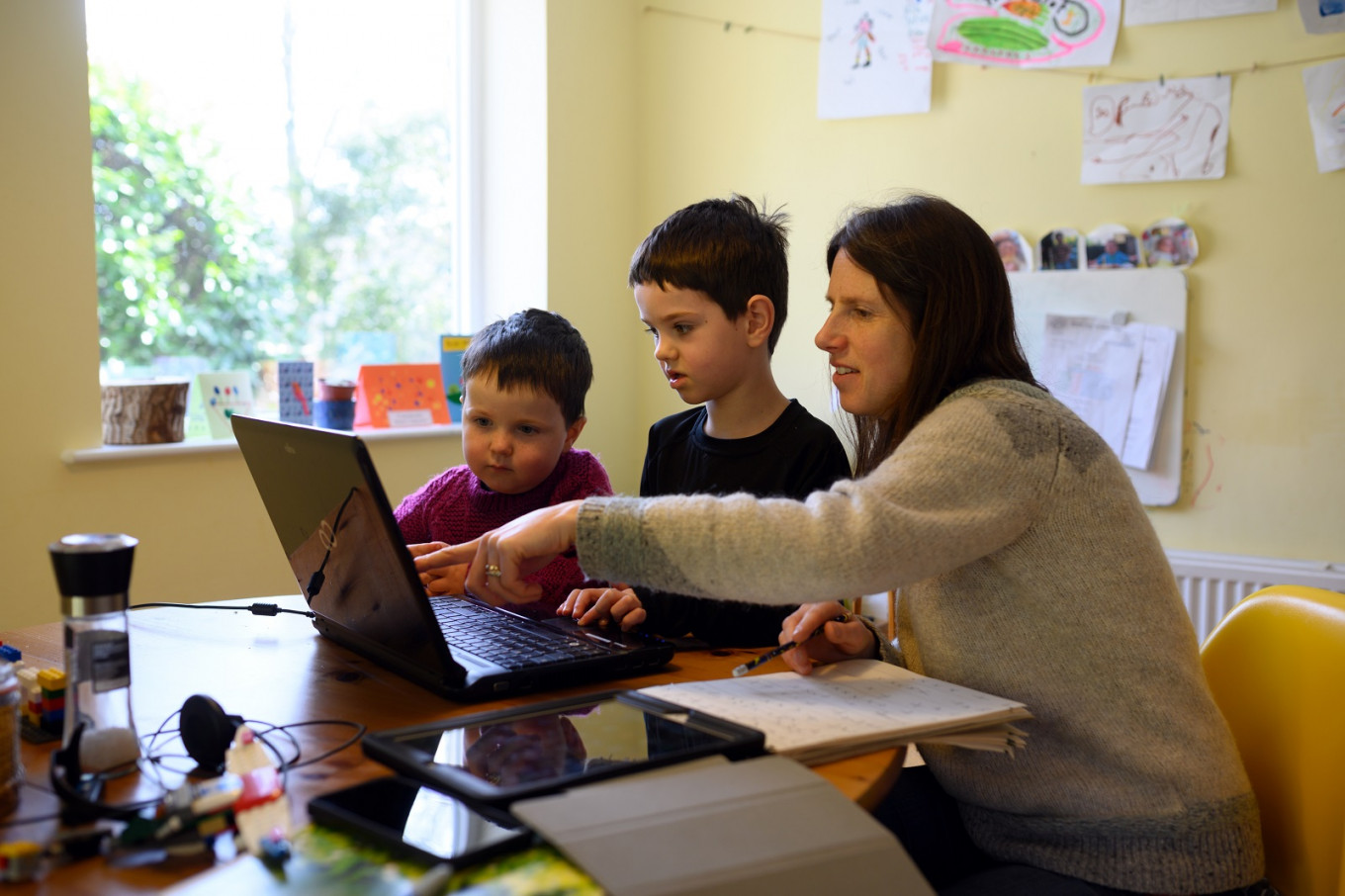Popular Reads
Top Results
Can't find what you're looking for?
View all search resultsPopular Reads
Top Results
Can't find what you're looking for?
View all search resultsPandemic teleworking is straining families: EU study
Change text size
Gift Premium Articles
to Anyone
 Leo (C), aged 6, and Espen, aged 3, are assisted by their mother Moira as they navigate online learning resources provided by their infant school in the village of Marsden, near Huddersfield, northern England on March 23, 2020 on the first school day since the nationwide closure of almost all schools except for the children of 'key workers', amidst the novel coronavirus COVID-19 pandemic. (AFP/Oli Scarff)
Leo (C), aged 6, and Espen, aged 3, are assisted by their mother Moira as they navigate online learning resources provided by their infant school in the village of Marsden, near Huddersfield, northern England on March 23, 2020 on the first school day since the nationwide closure of almost all schools except for the children of 'key workers', amidst the novel coronavirus COVID-19 pandemic. (AFP/Oli Scarff)
T
he COVID-19 pandemic is placing unprecedented strain on families and working life, an EU study showed on Friday, with more than a fifth of people who now work at home in households with younger children struggling to concentrate on their jobs.
The study by EU agency Eurofound, which seeks to improve living and working conditions, found that over a third of people working in the 27-nation European Union had started teleworking as a result of the pandemic.
Of those, 26 percent live in households with children under 12 and a further 10% with children aged from 12 to 17. Of those living with younger children, 22 percent reported difficulties in concentrating on their jobs all or most of the time.
That compared with 5 percent of households with no children and 7 percent with older children.
Read also: Parents, you don't always need to entertain your kids – boredom is good for them
Mary McCaughey, Eurofound head of unit for information and communication, said the health and economic implication of the pandemic were understandably dominating the thoughts of the public and policymakers.
"However, the toll this pandemic has taken on family life cannot be ignored. Parents are facing unprecedented challenges, particularly now that most cannot avail of childcare services, and many are required to supervise schooling at home," she said.










